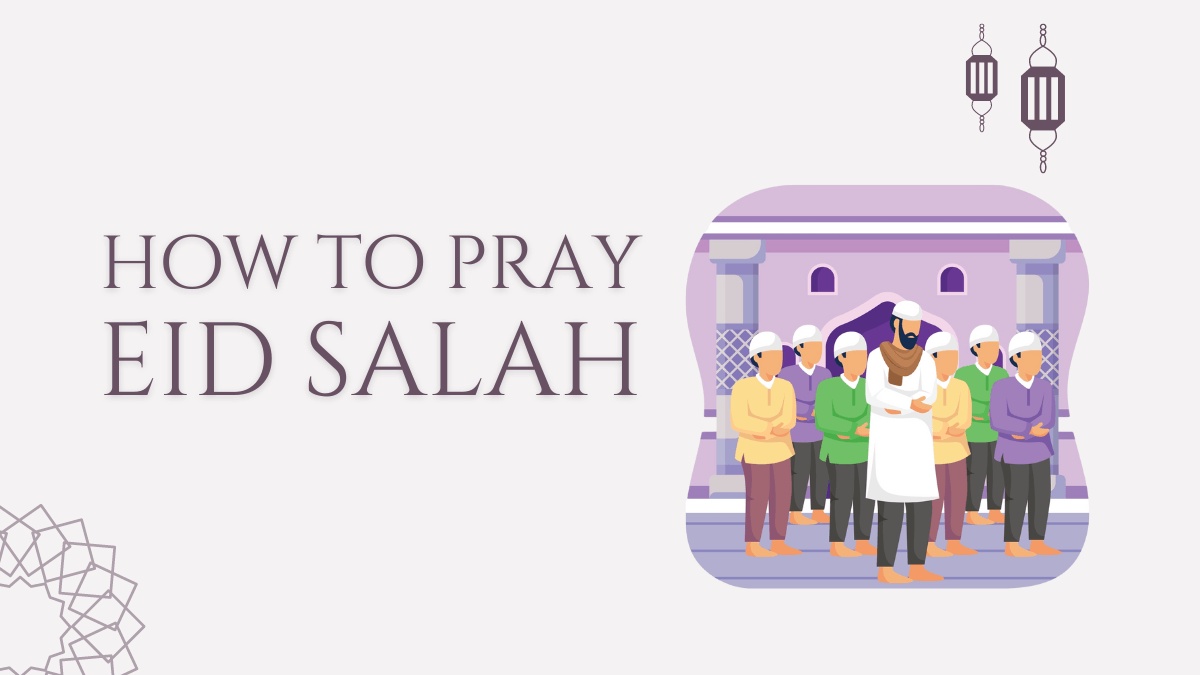Eid, also known as Eid al-Fitr or the Festival of Breaking the Fast, holds significant cultural and religious importance for Muslims worldwide. This joyous occasion marks the end of Ramadan, the Islamic holy month of fasting, and is celebrated with fervor and festivity. Understanding the essence of Eid and the rituals associated with it not only deepens one's appreciation for Islamic traditions but also fosters cross-cultural understanding and harmony.
When is Eid?
When is Eid? Eid is determined by the sighting of the new moon, which signifies the end of Ramadan and the beginning of Shawwal, the tenth month of the Islamic lunar calendar. The exact date varies each year and from one region to another, depending on the lunar sightings. However, Eid typically falls on the first day of Shawwal, following the completion of Ramadan, which consists of 29 or 30 days of fasting.
Preparations for Eid
In the days leading up to Eid, Muslims engage in various preparations, both spiritual and material. Houses are cleaned and decorated, new clothes are purchased, and special dishes are prepared for the festive meals. There is a sense of anticipation and excitement in the air as families and communities eagerly await the arrival of Eid.
Eid Prayer
The day of Eid begins with a special congregational prayer known as Salah al-Eid or Eid Salah. This prayer is a fundamental aspect of Eid celebrations and holds great significance in Islamic tradition. Here's a step-by-step guide on how to perform Eid Salah:
Step 1: Purification (Taharah)
Just like any other prayer in Islam, it is important to perform ablution (Wudu) before offering Eid Salah. This involves washing the face, arms, wiping the head, and washing the feet, as prescribed in Islamic teachings.
Step 2: Timing
Eid Salah is performed in the morning, typically after the sun has risen above the horizon. However, it is advisable to check with local mosques or Islamic centers for the exact timing of the prayer in your area.
Step 3: Venue
Eid Salah is performed in an open space or a designated prayer area, such as a mosque or a community hall. It is a communal prayer, and Muslims gather in large numbers to offer it together.
Step 4: Intention (Niyyah)
Before beginning the prayer, it is essential to make a sincere intention (Niyyah) to perform Eid Salah, with a focus on seeking the pleasure of Allah and commemorating the occasion of Eid.
Step 5: Takbirat
The Eid prayer consists of two Rakats (units of prayer), with additional Takbirat (proclamations of the greatness of Allah) before each Rakat. After the opening Takbirat, Muslims recite the Ta'awwudh (seeking refuge in Allah) and the Tasmiah (reciting "Bismillah" - "In the name of Allah") silently.
Step 6: Recitation of Surah Al-Fatiha and Another Surah
In the first Rakat, after the opening Takbirat, Muslims recite Surah Al-Fatiha (the opening chapter of the Quran) followed by another Surah (chapter) from the Quran. In the second Rakat, the process is repeated, albeit with a shorter recitation.
Step 7: Ruku' and Sujood
After the recitation, Muslims bow down in Ruku' (bowing position) and then prostrate in Sujood (prostration), following the usual sequence of movements in Salah.
Step 8: Second Rakat and Final Salutations
After completing the first Rakat, Muslims stand up for the second Rakat and repeat the same sequence of Takbirat, recitation, Ruku', and Sujood. Once the second Rakat is completed, Muslims offer the Tashahhud (testimony of faith) and conclude the prayer with the final Salutations (Salam).
Step 9: Sermon (Khutbah)
Following the Eid Salah, it is customary for the Imam (prayer leader) to deliver a sermon (Khutbah), which addresses various aspects of faith, gratitude, and community. The sermon serves as a source of guidance and inspiration for the congregation.
Conclusion
Eid is a time of spiritual renewal, communal bonding, and joyful celebration for Muslims around the world. By understanding the significance of Eid and the rituals associated with it, individuals of all backgrounds can appreciate the rich tapestry of Islamic culture and traditions. Through acts of prayer, charity, and fellowship, Eid embodies the values of compassion, gratitude, and unity that are central to the Islamic faith. As Muslims come together to mark this auspicious occasion, Eid serves as a reminder of the importance of faith, family, and community in our lives.


No comments yet